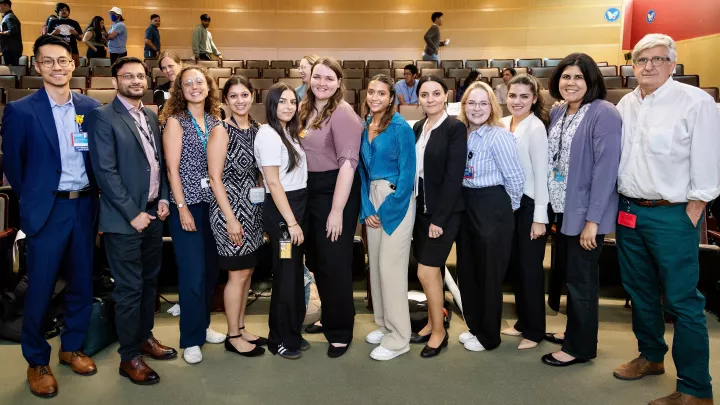
Research Trainee Spotlight: Miguel Ángel Rivas Fernández, PhD
Miguel Ángel Rivas Fernández, PhD, was inspired to pursue research by the residents of his hometown. “I come from Pontevedra, a city in northwest Spain with a significant aging population,” Dr. Fernández explains. “This made me interested in better understanding the factors that ultimately increase a person’s risk of developing issues such as cognitive decline related to Alzheimer’s disease late in life.”
While earning his master’s degree at the University of Santiago de Compostela, Dr. Fernández participated in projects in which he utilized neuroimaging to observe how the brain’s structure changes with age. “I developed a scientific interest in understanding the early-life risk factors that can influence not only what changes occur in the brain, but also how, when, and where they take place throughout the lifespan,” he says.
After earning his PhD, Dr. Fernández came to CHLA to work as a postdoctoral fellow in the laboratory of Shana Adise, PhD. Specifically, Dr. Fernández is working with data from the Adolescent Brain Cognitive Development (ABCD) study at CHLA, a 21-site NIH-funded consortium study exploring the development of the adolescent brain. Dr. Adise is a co-investigator on the study.
“Currently, I am investigating how exposure to air pollutants such as PM2.5, NO2 and O3 change the brain, and if this is related to childhood obesity,” Dr. Fernández explains. “It is thought that air pollutants change the brain via neuroinflammation, and we know that neuroinflammation may change appetite regulation and cause increases in food intake.” This work connects with Dr. Fernández’s interests, as obesity is associated with cognitive decline. Although air pollution has been separately related to the brain and to obesity, no prior studies have investigated the causal mechanisms by which this occurs.
Outside of the lab, Dr. Fernández enjoys playing tennis, hiking, listening to music, reading and watching television.


